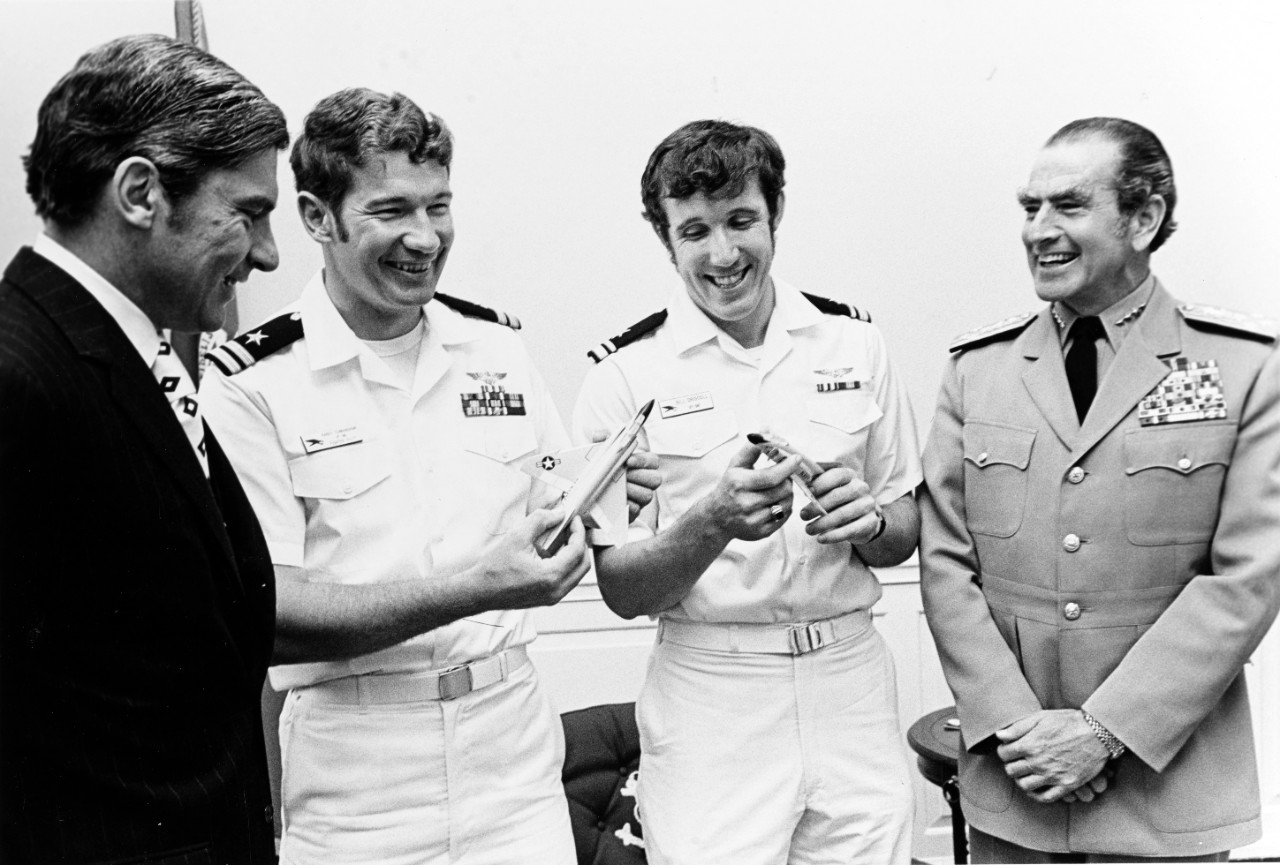
Did you know the Navy has a history full of surprising facts? From its humble beginnings to its role in major global events, the Navy has seen it all. The Navy's history is packed with stories of bravery, innovation, and even a few oddities. For instance, did you know that the Navy's first submarine was built in 1775? Or that the Navy SEALs were created in 1962? These are just a couple of the many fascinating tidbits you'll learn. Whether you're a history buff or just curious, these 19 amazing Navy history facts will give you a new appreciation for the men and women who serve on the high seas.
The Birth of the Navy
The history of the Navy is filled with fascinating events and milestones. Let's dive into some amazing facts that highlight the evolution and achievements of naval forces around the world.
-
The first recorded naval battle took place in 1210 BC between the Egyptians and the Sea Peoples. This battle marked the beginning of organized naval warfare.
-
The United States Navy was officially established on October 13, 1775. This date is now celebrated annually as the Navy's birthday.
Technological Advancements
Naval technology has come a long way since the early days of wooden ships and sails. Here are some key advancements that have shaped modern naval forces.
-
The USS Monitor and the CSS Virginia were the first ironclad warships, clashing in the Battle of Hampton Roads during the American Civil War in 1862. This battle revolutionized naval warfare.
-
Submarines became a game-changer during World War I. The German U-boat campaign demonstrated the strategic importance of underwater vessels.
-
The first aircraft carrier, HMS Argus, was commissioned by the Royal Navy in 1918. This innovation allowed for the launch and recovery of aircraft at sea, transforming naval operations.
Notable Naval Battles
Throughout history, several naval battles have had significant impacts on the course of events. These battles showcase the strategic importance of naval power.
-
The Battle of Salamis in 480 BC saw the Greek navy defeat the much larger Persian fleet. This victory was crucial in preserving Greek independence.
-
The Battle of Trafalgar in 1805 was a decisive British victory against the combined fleets of France and Spain. Admiral Nelson's tactics ensured British naval dominance for over a century.
-
The Battle of Midway in 1942 marked a turning point in the Pacific Theater during World War II. The United States Navy's victory crippled the Japanese fleet.
Naval Heroes
Naval history is filled with legendary figures whose bravery and leadership have left a lasting legacy.
-
Admiral Horatio Nelson is one of Britain's greatest naval heroes. His leadership at the Battle of Trafalgar secured his place in history.
-
John Paul Jones, often referred to as the "Father of the American Navy," is famous for his daring raids during the American Revolutionary War.
-
Grace Hopper, a pioneering computer scientist and Navy rear admiral, played a crucial role in developing early computer programming languages.
Naval Traditions and Customs
Naval forces around the world have rich traditions and customs that reflect their unique histories and cultures.
-
The tradition of "crossing the line" ceremonies dates back to the 16th century. Sailors crossing the equator for the first time undergo a rite of passage involving elaborate rituals.
-
The Navy's "anchor" tattoo symbolizes stability and steadfastness. It's a popular choice among sailors to represent their commitment to the sea.
-
The practice of "piping aboard" involves using a boatswain's pipe to welcome distinguished guests or officers onto a ship. This tradition dates back to the Age of Sail.
Modern Naval Achievements
Naval forces continue to achieve remarkable feats in the modern era, showcasing their adaptability and resilience.
-
The USS Enterprise (CVN-65) was the world's first nuclear-powered aircraft carrier. Commissioned in 1961, it served for over 50 years before being decommissioned in 2017.
-
The Navy SEALs, established in 1962, are renowned for their elite special operations capabilities. Their missions often involve high-risk, high-reward objectives.
-
The International Maritime Organization (IMO) was established in 1948 to promote maritime safety and environmental protection. It plays a crucial role in regulating global shipping.
Naval Exploration and Discovery
Naval forces have also played a significant role in exploration and discovery, expanding our understanding of the world.
-
The HMS Beagle, commanded by Captain Robert FitzRoy, carried Charles Darwin on his famous voyage that led to the development of the theory of evolution.
-
The United States Navy's Deep Submergence Vehicle (DSV) Alvin has made numerous groundbreaking discoveries, including exploring the wreck of the RMS Titanic in 1986.
Final Glimpse into Navy History
Navy history is packed with fascinating stories and remarkable achievements. From the invention of the submarine to the heroic tales of sailors, these facts highlight the bravery and innovation that have shaped naval forces worldwide. The Navy SEALs, for instance, are renowned for their elite training and daring missions. Meanwhile, the USS Constitution, also known as "Old Ironsides," remains a symbol of American resilience. The Battle of Midway turned the tide in the Pacific during World War II, showcasing strategic brilliance. Women in the Navy have broken barriers, serving with distinction in various roles. These snippets of history remind us of the dedication and sacrifice of those who serve at sea. As we reflect on these facts, it's clear that the navy's legacy is one of courage, innovation, and unwavering commitment.
Was this page helpful?
Our commitment to delivering trustworthy and engaging content is at the heart of what we do. Each fact on our site is contributed by real users like you, bringing a wealth of diverse insights and information. To ensure the highest standards of accuracy and reliability, our dedicated editors meticulously review each submission. This process guarantees that the facts we share are not only fascinating but also credible. Trust in our commitment to quality and authenticity as you explore and learn with us.


